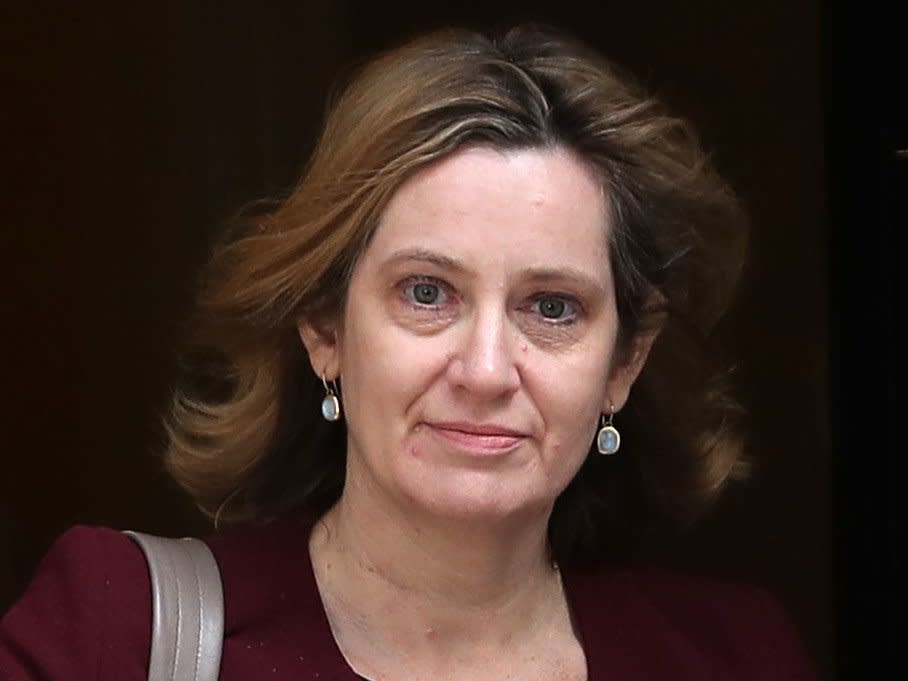Amber Rudd warned about ‘poisoned chalice’ of Universal Credit as she becomes sixth DWP secretary in less than three years
Critics have warned Amber Rudd she is taking on a “poisoned chalice” as she becomes the sixth work and pensions secretary in less than three years.
Opposition MPs urged Ms Rudd not to “repeat the mistakes of her many predecessors” as they warned that the rollout of universal credit (UC) was exacerbating poverty levels.
A report by a United Nations report published this week concluded the scheme, introduced by the former Department for Work and Pensions (DWP) minister Iain Duncan Smith, was “fast falling into discredit” and should be overhauled.
Ms Rudd backed the controversial scheme soon after her return to the cabinet, insisting she had seen it “transform lives”, while recognising "there had been some issues with it”.
Other's including Labour MP David Lammy were more sceptical. He tweeted that the position was ”a poisoned chalice”, before claiming that the government was “unlikely to survive until Christmas”.
Labour’s shadow minister for the cabinet office Jon Trickett said Theresa May's decision to appoint Ms Rudd, who was forced to step down as home secretary over the Windrush scandal only months ago, was a "desperate choice".
“After enforcing Theresa May’s hostile environment in the Home Office, Amber Rudd will now be in charge of the DWP’s hostile environment for disabled people and the poorest in society," he said. “With Universal Credit in absolute shambles, appointing a disgraced former minister who was only recently forced to resign for her role in another scandal is a desperate choice by a weak prime minister.”
Universal credit replaces six existing benefits – employment support allowance, income support, income-based jobseeker’s allowance, housing benefit, working tax credit and child tax credit – with a single payment.
A National Audit Office report released in June found food bank use in Ms Rudd’s constituency, Hastings, had risen by 80 per cent since UC was rolled out there.
The rollout of UC started with new recipients in pilot areas in 2013, but the scheme has been plagued by delays and it is now not due for completion until 2023.
Professor Philip Alston, the UN Special Rapporteur on extreme poverty and human rights said in his report the introduction of UC has caused extreme hardship that could easily be reversed by the government.
The Scottish National Party’s social justice spokesperson, Neil Gray MP said Ms Rudd should put the new UN report on poverty in the UK “at the top of her reading list”.
“She must not repeat the mistakes of her many Tory predecessors, who have punished the poor with multi-billion pound cuts to social security and a callous approach,” he said. “Instead of plunging even more families into poverty, the UK government must boost household incomes by halting and radically reforming Universal Credit, ending the benefits freeze, introducing a real living wage, and delivering justice."
In an interview with broadcasters, Ms Rudd said as a one-nation Tory she wanted to “make sure that we really do help everybody across the country”.
Asked whether responsibility for universal credit was a “poisoned chalice”, she replied: “I have seen Universal Credit do some fantastic things.
“In my constituency in Hastings and Rye it really has transformed lives. But I also recognise that there have been some issues with it, some problems with it. I see it very much as my job, my role, to make sure that I try to iron out those difficulties so it becomes a force wholly for good.”
Additional reporting by Press Association

 Yahoo News
Yahoo News 

